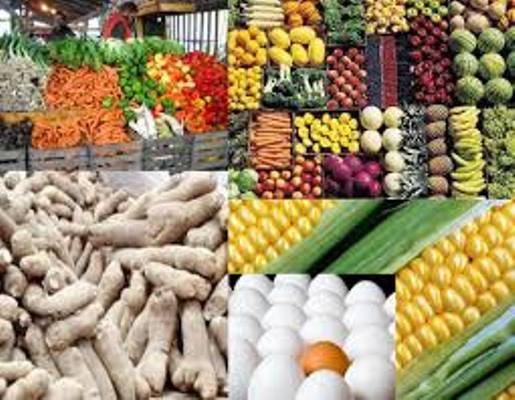In its latest update, the World Bank has reported that domestic food price inflation remains high.
The end of April 2024 report said inflation recorder higher than 5% is experienced 57.1% of low-income countries (no change since the last update on April 11, 2024).
It said information records hit 63.8% of lower-middle-income countries (no change), 33% of upper-middle-income countries (3.0 percentage points lower), and 12.7% of high-income countries (9.1 percentage points lower).
In real terms, food price inflation exceeded overall inflation in 48.8% of 166 countries where data is available.
Compared to two weeks ago, the agriculture and cereal price indices closed 1% higher, respectively, and the export price index closed 3% higher.
Among cereals, maize and wheat prices closed 2% higher, respectively, while rice closed 1% lower.
On a year-on-year basis, maize prices are 34% lower and wheat prices are 17% lower.
Rice prices on the other hand are 24% higher. Compared to January 2020, maize prices are 15% higher, wheat prices are 3% higher, and rice prices are 47% higher. (See “pink sheet” data for agricultural commodity and food commodity prices indices, updated monthly.)
According to the USDA Economic Research Service, global wheat ending stocks for the 2023/24 period are anticipated to hit an eight-year low, dropping 0.6 million metric tons (MMT) to 258.3 million metric tons (MMT).
This decline is primarily attributed to India’s diminished wheat stocks, forecasted to decrease by 2.1 MMT to 6.9 MMT due to faster consumption rates than previously estimated.
India’s ending stocks will have plummeted by over 20 MMT from their peak in 2020/21, reflecting a substantial reduction. Overall, global stocks have seen a decline of 39 MMT from their peak in 2019/20, with China contributing 18 MMT to this decrease.
According to the latest Global Report on Food Crises (GRFC), nearly 282 million people in 59 countries and territories experienced high levels of acute hunger in 2023 – a worldwide increase of 24 million from the previous year.
This rise was due to the report’s increased coverage of food crisis contexts as well as a sharp deterioration in food security, especially in the Gaza Strip and the Sudan.
For four consecutive years, the proportion of people facing acute food insecurity has remained persistently high at almost 22 percent of those assessed, significantly exceeding pre-COVID-19 levels.
The Global Network Against Food Crises urgently calls for a transformative approach that integrates peace, prevention, and development action alongside at-scale emergency efforts to break the cycle of acute hunger which remains at unacceptably high levels.
According to new research published by the International Food Policy Research Institute (IFPRI), international fertilizer prices have fallen by 50% from their peak in April 2022.
Factors such as an increase in demand in the post-COVID economic recovery, disruptions to the global supply chain, Russia’s invasion of Ukraine caused global fertilizer prices to increase significantly from 2021 to 2022.
These events raised concerns that fertilizer application would be reduced, which could decrease production and increase food insecurity, but price shocks appear to have had a limited impact on fertilizer use.
As highlighted in a recent IFPRI blog, parts of Southern Africa have been reeling under the grip of a severe drought since late 2023, exacerbated by the ongoing El Niño Southern Oscillation. This has resulted in plummeting harvests; prompted disaster declarations in Malawi, Zambia, and Zimbabwe; and affected countries across the region.
Dwindling maize yields pose a grave threat to food security for millions of households reliant on this staple for a significant portion of their daily calorie intake.
Following Russia’s invasion of Ukraine, trade-related policies imposed by countries have surged.
The global food crisis has been partially made worse by the growing number of food and fertilizer trade restrictions put in place by countries with a goal of increasing domestic supply and reducing prices. As of April 22, 2024, 16 countries have implemented 22 food export bans, and 8 have implemented 15 export-limiting measures.














